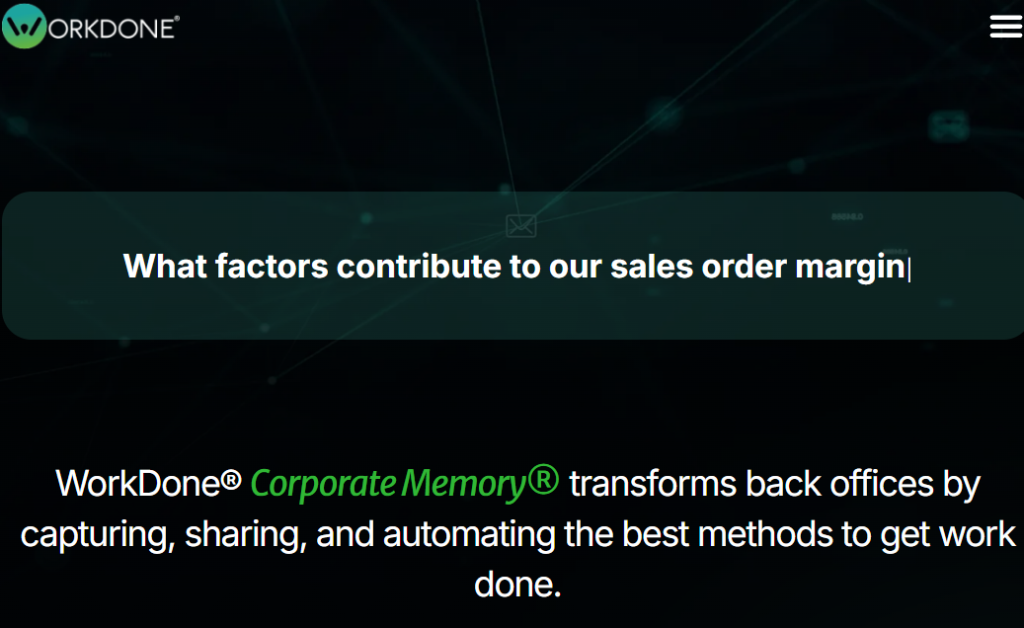
WorkDone, a Y Combinator-backed startup from the Winter 2025 batch (YC X25), has successfully raised $1.8 million in funding to tackle one of healthcare’s most overlooked but mission-critical bottlenecks: medical compliance and documentation accuracy. This early-stage round was led by Pioneer Fund, with participation from DVC, Fjor, Ryan Chan, Eric Norman, and several strategic angel investors who recognize the cost, complexity, and compliance pressure weighing down healthcare providers across the U.S.
Co-founded by Dmitry Karpov, WorkDone is designed to automate and optimize medical chart reviews, improve insurance compliance, and eliminate lost billing opportunities caused by human error or documentation gaps.
Solving a $100 Billion Healthcare Problem
In the U.S. alone, providers lose over $125 billion every year in denied claims and billing inaccuracies. With the rise of value-based care, changing CPT codes, and complex payer rules, health systems are increasingly exposed to revenue leakage from incomplete, inconsistent, or non-compliant documentation.
WorkDone’s AI-powered compliance platform scans, reviews, and corrects medical charts in real time, surfacing missed opportunities, outdated codes, and audit triggers before they lead to denied claims or legal exposure.
The platform offers:
- AI-based compliance reviews that flag missing elements in EHR entries
- Real-time suggestions for charting completeness and claim readiness
- Insights into denial trends, clinician patterns, and risk areas
- Seamless integration with major EHR systems and insurance portals
- HIPAA-compliant cloud infrastructure for safe and secure usage
The product is already in pilot with several mid-sized outpatient networks, helping optimize documentation workflows and reduce the turnaround time for claim approvals.
The Founder’s Insight: Fix the Documentation, Save the Revenue
Dmitry Karpov brings a strong technical and operational background from previous ventures in automation and enterprise SaaS. His realization was simple but powerful: clinicians aren’t underperforming - they’re under-supported by their systems. With 73% of healthcare providers spending more than 3 hours a day on documentation, there’s an enormous opportunity to shift that burden to intelligent systems.
This led to the creation of WorkDone - a company born not just from AI enthusiasm, but from firsthand empathy for frontline healthcare teams drowning in clerical load.
Karpov and team built their first prototype by reverse-engineering the common causes of claim denials and medical record audits. Instead of relying solely on retrospective fixes, WorkDone is designed to intervene earlier - at the point of documentation.
Deep Insight for Founders: Pre-Sales Before AI Scalability
What stands out about WorkDone is how it secured strong pilot traction before writing a single production-grade model. The founding team manually reviewed over 1,500 charts to identify pain patterns, then built rules-based validation layers as scaffolding before layering in full-scale ML.
This hybrid approach gave them two critical advantages:
- Immediate product-market validation in environments where clinicians trusted the AI because it mirrored their thinking.
- A data labeling advantage, where clinician-reviewed charts became the training bed for refining predictive compliance suggestions.
The lesson for AI founders here is crucial: you don’t need a bleeding-edge model on day one - you need workflow credibility, embedded trust, and a scalable wedge.
Market Outlook: Healthcare Compliance Automation Is Heating Up
The market for compliance automation in healthcare is expected to explode. According to MarketsandMarkets, the AI in healthcare documentation market will reach $6.7 billion by 2028, growing at a CAGR of over 35%. Demand is fueled by stricter CMS guidelines, private payer scrutiny, and a growing shortage of administrative talent in healthcare.
Furthermore:
- Over 90% of hospital systems now rely on 3rd-party revenue cycle vendors to maintain billing and documentation compliance (RevCycle Intelligence, 2024).
- The average claim denial rate in the U.S. reached 17% in 2023 - up from 11% in 2016 (Change Healthcare).
- Physician burnout reached an all-time high at 63% in 2023, with EHR workload cited as a primary driver (Medscape).
- CMS audits are now targeting provider documentation consistency, particularly in behavioral health and urgent care settings.
These pressures make WorkDone’s mission increasingly urgent - and highly scalable. Automating documentation review isn’t just about saving money; it's about ensuring accuracy, care quality, and workforce sustainability.
What’s Next for WorkDone?
With fresh funding, the company plans to:
- Expand its engineering and compliance research teams to build more advanced contextual models
- Launch deeper Epic, Cerner, and AthenaHealth integrations to scale across hospital systems
- Deploy risk-based chart scoring, enabling faster triage of problematic records
- Begin automated pre-audit modules, allowing providers to self-review against common CMS flags
- Build a self-serve dashboard for billing teams and compliance officers, offering full visibility into clinical documentation health
There are also hints of future expansion into payer-provider interoperability, a frontier that could allow WorkDone to score chart quality in real time before payer submission - an absolute game-changer in reducing billing delays.
A Compliance Operating System for the Healthcare Era
What Stripe did for developer-friendly payments, WorkDone aims to do for compliance and reimbursement in healthcare. By making AI invisible, contextual, and accurate, it can help restore billions in lost revenue - while giving doctors the one thing they want most back: time with patients, not paperwork.









